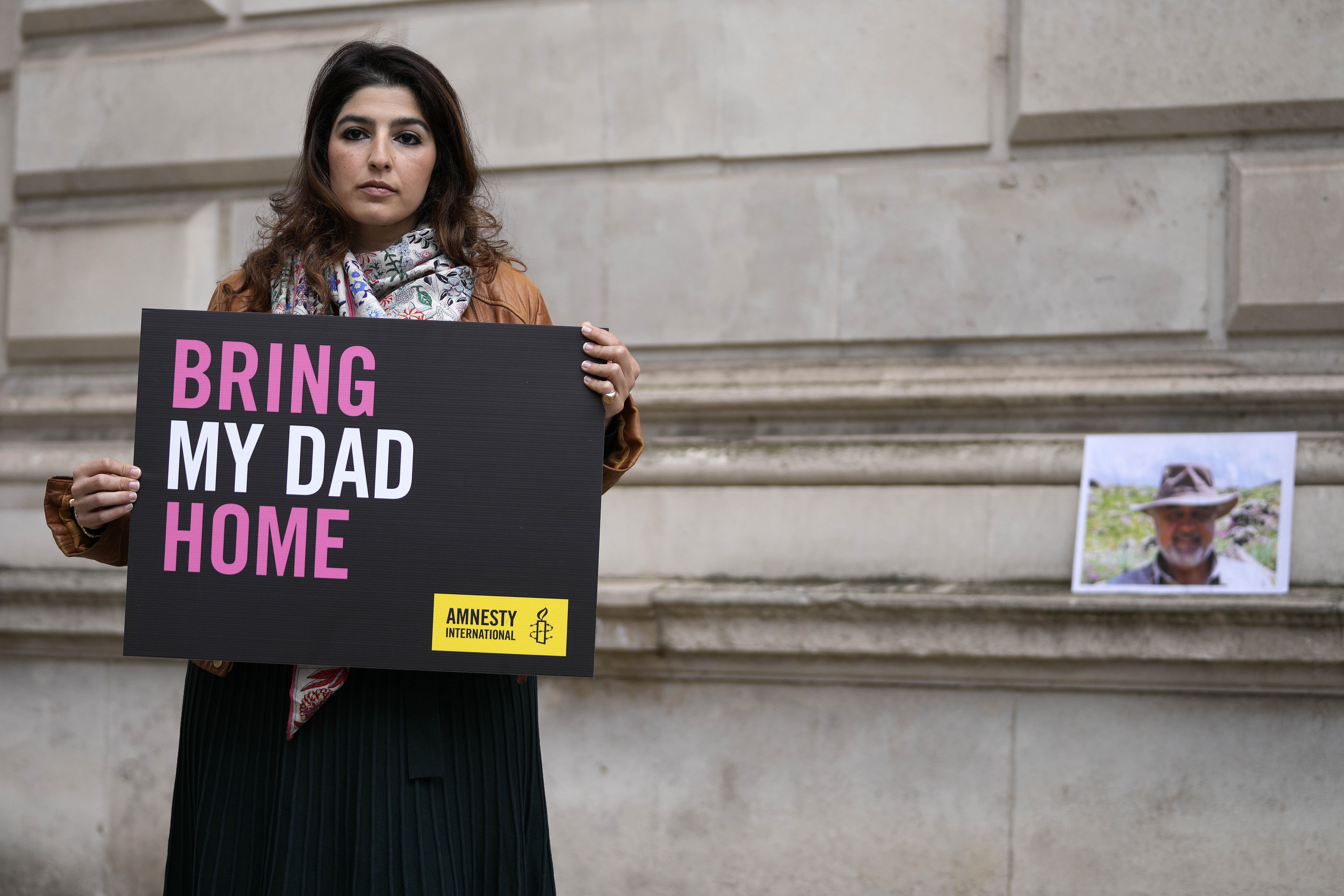
Tehran, Iran – Iran has released five American prisoners, moving them to Tehran’s airport for a flight to the Qatari capital, Doha, as part of a prisoner exchange with the United States.
Four of the five were moved to house arrest last month as part of the deal. The fifth prisoner had been moved to house arrest earlier.
Monday’s developments signal that the prisoner exchange clinched last month has gone through. The agreement also includes a release of frozen Iranian funds.
The prisoners
Five Iranian prisoners are expected to be released by the US as part of the deal:
Kaveh Afrasiabi, a political scientist and US resident who was charged with being an unregistered agent for the Iranian government.
Mehrdad Moein Ansari, a 40-year-old Iranian resident of the United Arab Emirates and Germany who was convicted of violating sanctions on Iran.
Amin Hassanzadeh, a permanent US resident accused four years ago of stealing secrets to send to Iran.
Reza Sarhangpour Kafrani, a 46-year-old who is also a Canadian national charged with illegally exporting laboratory equipment to Iran.
Kambiz Attar Kashani, a 44-year-old dual national convicted of conspiring to illegally export technologies and goods to Iran.
Only two of the Iranian prisoners will return to Iran, a Ministry of Foreign Affairs spokesman said.
“One of them, as he has family in another country, will be moved to join them in that third country, and apparently two of our citizens imprisoned in the US have said they wish to remain there due to their history of staying there,” Kanani said.
The identities of three of the American prisoners, all of whom were arrested on charges of espionage and collaborating with a foreign government, are known. They are:
Siamak Namazi, a 51-year-old businessman held in Evin Prison since 2015, making him the longest-serving American prisoner in Iran.
Emad Shargi, a 59-year-old businessman arrested in 2018.
Morad Tahbaz, a 67-year-old environmentalist who also holds British citizenship and was arrested in 2018.
The identities of the other two prisoners have remained secret, but Western media have reported that one is a woman.
Iran’s frozen funds
The agreement, reached last month with Qatari mediation, includes the release of about $6bn of Iranian money.
The funds were frozen for years in South Korea as part of US sanctions imposed in 2018 when Washington abandoned Iran’s 2015 nuclear deal with world powers.
The money was first exchanged for euros and transferred to Switzerland before being sent to the accounts of six Iranian banks in Qatar to be used for the purchase of non-sanctioned goods.
Iranian Foreign Affairs Ministry spokesman Nasser Kanani had told reporters earlier on Monday that the exchange is expected to be completed before the end of Monday after Iran confirms access to its money and the release of the Iranian prisoners.
Nuclear deal, missiles and IAEA
The exchange took place as Iranian President Ebrahim Raisi arrived in New York on Monday to take part in the United Nations General Assembly and hold meetings on its sidelines.
The Foreign Affairs Ministry spokesman said Tehran still sees a way for all sides to return to the Joint Comprehensive Plan of Action (JCPOA), as the nuclear accord is formally known, and indirect talks may be held in New York.
“But we must emphasise that Iran’s efforts to remove the sanctions will not be limited to the path of JCPOA negotiations,” Kanani said.
Meanwhile, Iran and the International Atomic Energy Agency (IAEA) still fail to see eye to eye on a number of issues relating to the monitoring of Tehran’s nuclear programme, which it maintains is strictly peaceful.
Last week, Iran expelled eight French and German IAEA inspectors after France, Germany and the United Kingdom had signed a statement with the US criticising Iran for not cooperating with the international nuclear watchdog on a number of outstanding issues, including uranium traces found at several sites.
The European allies also said last week that they would keep their own sanctions on Iran related to the country’s development of ballistic missiles as a “direct response to Iran’s consistent and severe noncompliance” with the 2015 nuclear deal.
As part of the nuclear accord, a number of restrictions on the research and development of ballistic missiles are set to expire next month.
The Iranian Foreign Ministry spokesman said that as far as Tehran is concerned, the restrictions will be automatically lifted on October 18 and the European countries’ decision is an internal one.
“We hold no value for the limitations that the European Union has imposed,” Kanani said.







